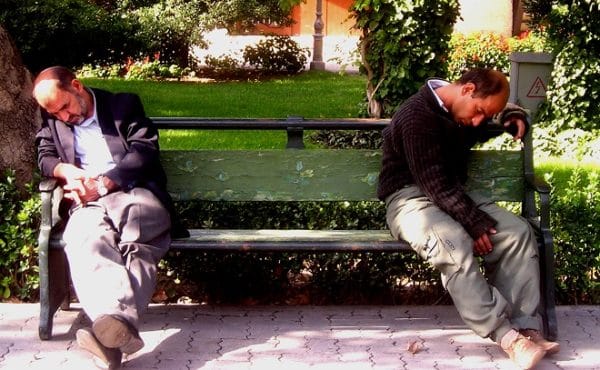
 Russia’s space program has concluded a unique sleep deprivation test involving would-be cosmonauts, with the results showing that the female participants were more able to deal with the declines in mental acuity associated with imposed sleep deprivation than their male counterparts.
Russia’s space program has concluded a unique sleep deprivation test involving would-be cosmonauts, with the results showing that the female participants were more able to deal with the declines in mental acuity associated with imposed sleep deprivation than their male counterparts.
Part of a 17-day space training experiment to simulate the conditions of orbit around the moon, the experiment involved six crew members who spent 38 hours in a row awake, completing simple cognitive tasks at the term’s end, such as figuring out arithmetic problems.
“The crew coped with the program. There were delays, though. Some participants were a little bit slow in coping with operator tasks due to fatigue. The negative effects were the strongest not during night hours, but the next day, during the last hours of the sleep deprivation experiment,” said laboratory chief Vadim Gushchin of the Russian Academy of Sciences’ Institute of Medical and Biological Problems in Moscow, to the TASS news agency. “The two best results came from two young women, while one male contestant came in third,” he said.
The two-week plus ordeal was in aid of gathering more evidence on human capabilities within the cramped quarters of a mock-space station, as the Russian space program Roscosmos prepares to join NASA in creating a lunar orbiting spaceport. Announced earlier this year, the partnership will mean both countries will build the lunar orbiter over upcoming years (starting in the mid-2020s), with the more long-term aim of sending a human-led mission to Mars.
Gushchin says that the crew, composed of cosmonauts and employees from the Medical and Biological Problems Institute worked well together during their time in a confined space and with minimal contact with the outside world, observing that the members, who had not met before the experiment began, exhibited a “powerful synergy of both sexes” in that the “men’s stamina and high professionalism” was matched by the women’s “flexibility, sensitivity and ability to unite and organize.”
Previous research has been conducted on the different ways that men and women respond to sleep deprivation. Chronically poor sleep has been shown to be worse for women than men when it comes to health problems, with hormonal differences between the genders said to be crucial. One study at Duke University Medical Center found that women who reported unhealthy sleep were at a higher risk for developing heart disease, type 2 diabetes and depression.
A 2015 study from researchers at the University of L’Aquila in Italy found that one night of sleep deprivation had differing effects on men and women when it comes to risk aversion and social preference. In a sample of 32 university students, the men were found to make riskier decisions when sleep deprived whereas the women were the opposite: more apt to be conservative. At the same time, sleep-deprived women showed less altruistic fairness in their behaviour compared to being well-rested, whereas there was no change noticeable in men’s altruistic behaviour.
Scientists say that on average women actually need more sleep than men —about 20 minutes more— and that’s because their daily actions often involve more multitasking, incorporating more areas of the brain and hence the need for the added mental recovery provided by sleep
Leave a Reply
You must be logged in to post a comment.




 Share
Share Tweet
Tweet Share
Share




Comment